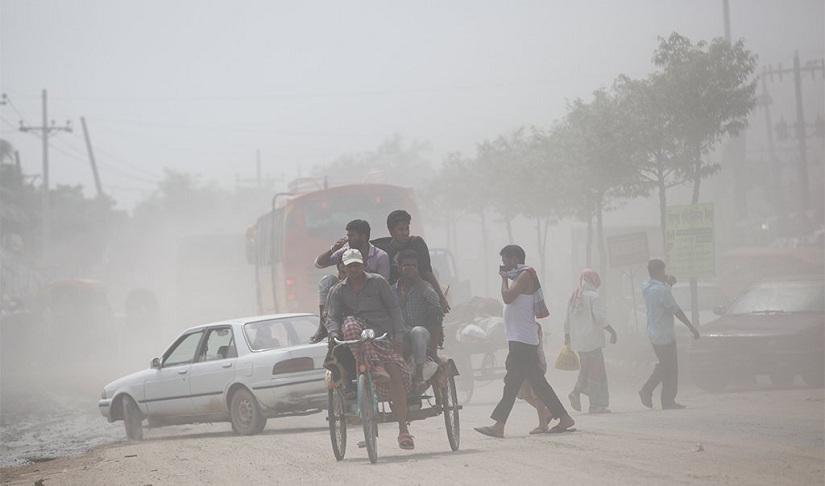 Bangladesh’s capital, Dhaka, has ranked worst on the world Air Quality Index (AQI) — as its extreme air pollution makes it one of the most polluted cities.
Bangladesh’s capital, Dhaka, has ranked worst on the world Air Quality Index (AQI) — as its extreme air pollution makes it one of the most polluted cities.
On the real-time rankings, Dhaka scored 224 at 9:36 am on Wednesday, according to AirVisual, which monitors global air quality.
Dhaka's air quality was classified as “very unhealthy.”
Pakistan’s Lahore and India’s Delhi occupied the second and third position with AQI scores of 206 and 201 respectively.
When the AQI value is between 201 and 300, the entire population is more likely to be affected. In this situation, children are advised to limit outdoor activities.
The AQI, an index for reporting daily air quality, informs people how clean or polluted the air of a certain city is, and what associated health effects might be a concern for them.
In Bangladesh, the AQI is based on five criteria pollutants – Particulate Matter (PM10 and PM2.5), NO2, CO, SO2 and Ozone (O3).
The Department of Environment has also set national ambient air quality standards for these pollutants. These standards aim to protect against adverse human health impacts.
As one of the most densely-populated countries in the world, Bangladesh has been struggling with air pollution for a long time. Dhaka continuously ranks among the world’s most polluted cities.
Brick kilns, vehicles run on fuel containing higher levels sulphur, as well as construction work, have all been identified as major sources of air pollution.
Air quality further declines during the dry months—from October to April—but improves during the monsoon.


